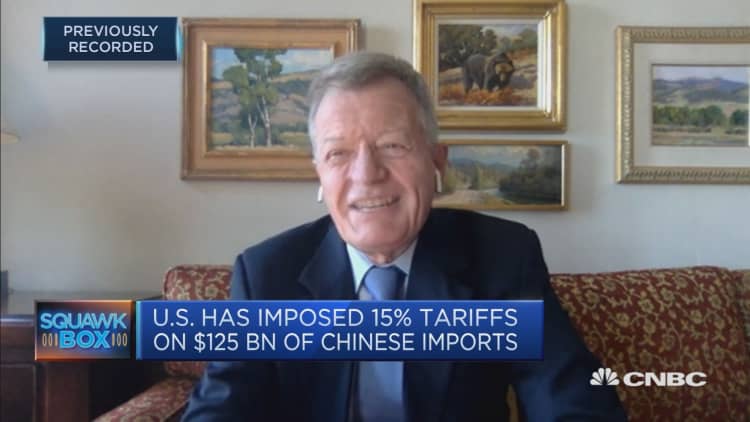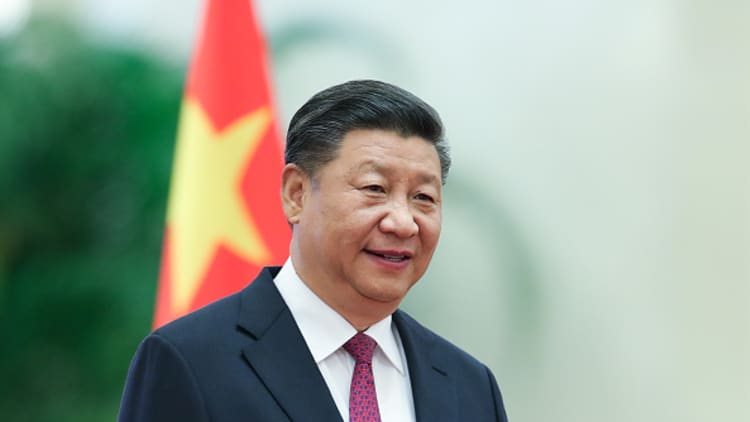
A sense of nationalism is growing in China, and that could bolster support for those hoping to wait out the trade dispute with the U.S., said Max Baucus, a former American ambassador to China.
"Don't forget … Chinese (are) very patient historically, they'll wait it out, they'll play lots of different angles. They're going to try to hang in there, waiting for President (Donald) Trump to come to them," he told CNBC on Monday.
"There's a feeling that nationalism is getting a little stronger … I think that's also emboldening President Xi," said Baucus, who served as ambassador to China from February 2014 to January 2017, under former President Barack Obama's administration.
The Chinese are afraid to reach a deal with this president — it may not last, they can't count on it, he might change his mind again.Max Baucusformer American ambassador to China
In fact, the sentiment on the ground in China is that Beijing could be in it "for the long haul," he said. "The Chinese (are) beginning to want to wait out Trump," said Baucus. He added that China might be perceiving that the U.S. is in a weaker position — its economy might be worse than current indications, and American farmers appear to be taking a big hit from the tariffs.
China on Sunday imposed additional duties on certain U.S. goods on a $75-billion target list, while U.S. tariffs on $112 billion of Chinese imports also took effect the same day.
Unpredictable Trump
There are also trust issues between the two sides as Beijing perceives Trump as unpredictable, said Baucus.
"From China's perspective, China ... has a hard time trusting President Trump, who keeps changing his mind. He pulls out the rug from under his negotiators ... The Chinese are afraid to reach a deal with this president — it may not last, they can't count on it, he might change his mind again," Baucus said.
"If there's another administration, they think it might be better in the sense that it'd be more predictable, there'd be less uncertainty. It'd be more standard negotiations," he continued. U.S. presidential elections are slated to take place in November 2020, with much debate on whether both parties would come to an agreement before the polls.

Earlier this month, Baucus told CNBC that China "can withstand more pain" than the Americans.
His recent comments echoed the sentiment of other analysts, who have said China's best option is to play the long game — by tapping the power of its domestic economy rather than depending on external trade.
The decline in exports — a result of the trade war — hasn't made much of a dent in China's gross domestic product growth, they said. On the other hand, the country's consumption is increasingly contributing to its economy, they added.
Ahead of 70th anniversary
Meanwhile, China's closely-watched 70th National Day anniversary is coming up on October 1, and it "will dominate coming weeks, both politically and economically," said risk consultancy Eurasia Group in a Friday note.
There will be "an acute awareness for any attempts to interfere in Chinese domestic affairs in the coming weeks," analysts at Eurasia wrote.
"Xi may use the platform to speak about Hong Kong and Taiwan, potentially introducing additional volatility into already tense situations," they wrote.
Since early June, increasingly violent protests have gripped Hong Kong and China has had terse exchanges with both the U.S. and the U.K. over the months-long protests, accusing them of stirring up the unrest.



